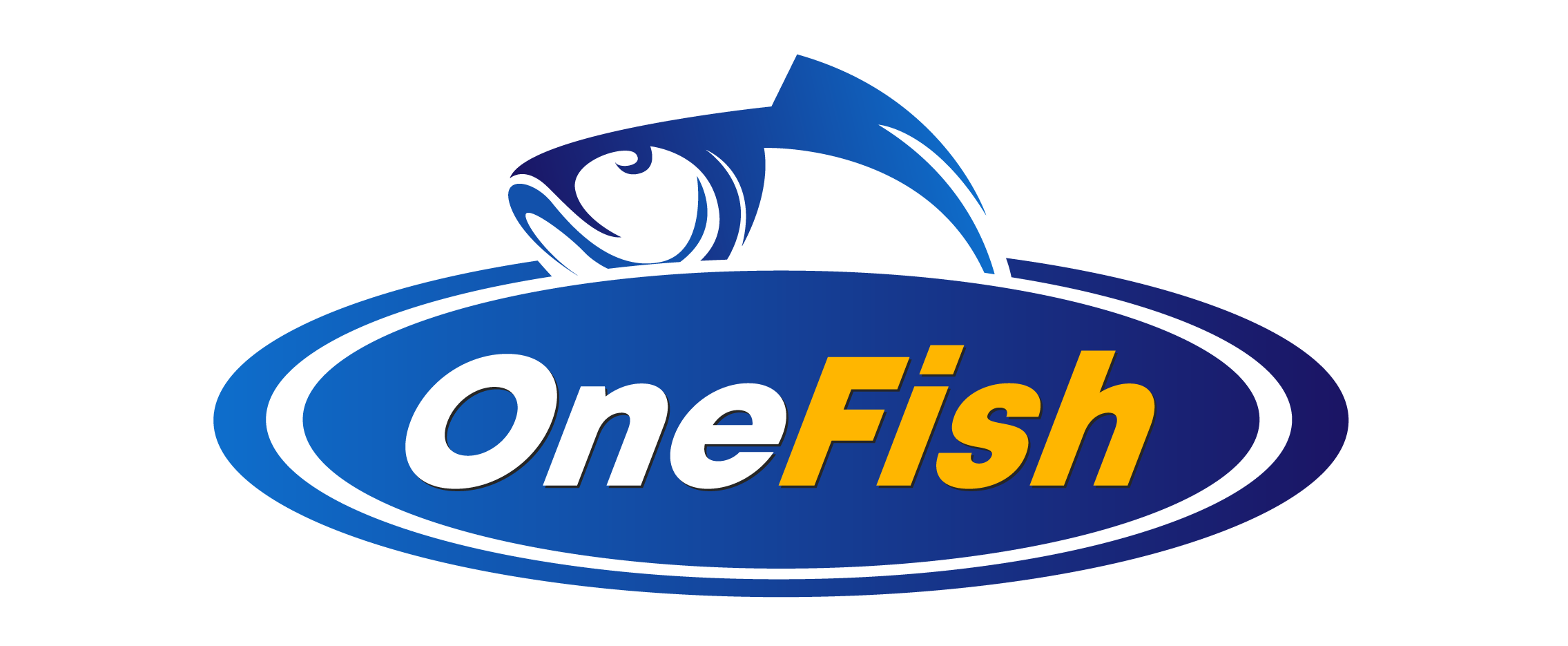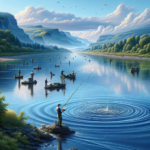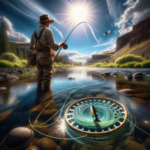Fishing in the Rogue River: Oregon’s Best Fishing Waters
Introduction
Did you know that the Rogue River in Oregon is one of the most renowned fishing destinations in the United States? With its pristine waters and diverse fish species, it offers an unparalleled experience for anglers of all skill levels. This article will delve into the various aspects of fishing in the Rogue River, including the best techniques, species to target, top fishing spots, and essential gear. Whether you’re a seasoned angler or a novice, this guide will help you make the most of your fishing adventure on the Rogue River.
Fishing in the Rogue River matters because it provides not only a recreational activity but also a connection to nature and a means of conservation. Understanding the best practices and techniques can enhance your experience and contribute to the sustainability of this precious ecosystem.
Background/Context
Historical or Cultural Significance
The Rogue River has a rich history that dates back to the Native American tribes who originally inhabited the region. These tribes relied on the river for sustenance, particularly its abundant salmon runs. In the 19th century, the river became a focal point for gold miners and settlers. Today, it remains a vital part of Oregon’s natural heritage, attracting anglers from around the world.
Geographical Overview
The Rogue River originates in the Cascade Range near Crater Lake and flows southwest for 215 miles before emptying into the Pacific Ocean. The river’s diverse topography includes rugged canyons, lush forests, and serene meadows. The climate varies from temperate rainforests in the upper reaches to drier, Mediterranean-like conditions downstream. This diversity supports a wide range of fish species and makes the Rogue River a unique fishing destination.
Key Points/Details
Fishing Techniques
Technique Overview
The Rogue River is suitable for various fishing techniques, including fly fishing, spin fishing, and baitcasting. Fly fishing is particularly popular for targeting trout and steelhead, while spin fishing and baitcasting are effective for salmon and bass.
When and Where to Use
Fly fishing is best in the upper reaches of the river, especially during the spring and fall when trout and steelhead are most active. Spin fishing and baitcasting are more effective in the middle and lower sections, particularly during the summer and early fall when salmon runs are at their peak.
Recommended Gear
- Fly Fishing: 9-foot, 5-6 weight rod, floating line, and a variety of nymphs and dry flies.
- Spin Fishing: Medium-action rod, spinning reel, 8-12 lb test line, and lures like spinners and spoons.
- Baitcasting: Medium-heavy rod, baitcasting reel, 12-20 lb test line, and bait like salmon eggs or worms.
Species Information
Species Overview
The Rogue River is home to a variety of fish species, including Chinook salmon, Coho salmon, steelhead, rainbow trout, and smallmouth bass. Each species has its own unique habits and preferred habitats.
Best Practices
- Chinook Salmon: Use large, brightly colored lures or bait. Fish during early morning or late evening in deeper pools.
- Coho Salmon: Smaller lures and spinners work well. Target them in the middle sections of the river during fall.
- Steelhead: Fly fishing with nymphs or streamers is effective. Focus on riffles and runs during winter and spring.
- Rainbow Trout: Dry flies and small nymphs are ideal. Fish in the upper reaches during spring and summer.
- Smallmouth Bass: Use crankbaits or soft plastics. Target rocky areas and submerged structures during summer.
Location Information
Top Fishing Spots
- Upper Rogue River: Known for its excellent trout and steelhead fishing. Access points include Shady Cove and Lost Creek Lake.
- Middle Rogue River: Popular for salmon fishing. Key spots include Grants Pass and Galice.
- Lower Rogue River: Offers a mix of salmon, steelhead, and bass fishing. Gold Beach is a prime access point.
Regulations and Licenses
Anglers must have a valid Oregon fishing license, and specific tags are required for salmon and steelhead. Be sure to check the Oregon Department of Fish and Wildlife (ODFW) website for the latest regulations, including catch limits and seasonal restrictions.
Seasonal Considerations
Seasonal Variations
Fishing conditions on the Rogue River change throughout the year. Spring and fall are ideal for trout and steelhead, while summer is best for salmon and bass. Winter can be challenging due to high water levels but offers opportunities for hardy anglers targeting steelhead.
Best Times to Fish
- Spring: March to May for steelhead and trout.
- Summer: June to August for salmon and bass.
- Fall: September to November for salmon and steelhead.
- Winter: December to February for steelhead.
Events and Tournaments
Event Overview
The Rogue River hosts several fishing events and tournaments throughout the year, including the annual Rogue River Salmon Derby and various steelhead competitions. These events attract anglers from all over and offer prizes and community engagement.
Preparation Tips
- Register early to secure your spot.
- Practice your techniques and familiarize yourself with the event rules.
- Ensure your gear is in top condition and suited for the targeted species.
Tips and Best Practices
General Tips
- Always check the weather forecast before heading out.
- Use local knowledge and guides to find the best spots.
- Practice catch and release to help conserve fish populations.
Avoid Common Mistakes
- Not checking local regulations can result in fines.
- Using the wrong gear for the targeted species can reduce your chances of success.
- Ignoring seasonal variations can lead to poor fishing experiences.
Advanced Techniques
- Mastering the double haul cast for fly fishing can increase your casting distance and accuracy.
- Using a fish finder can help locate schools of fish more efficiently.
- Experimenting with different lure colors and sizes can help you adapt to changing conditions.
Gear and Equipment Recommendations
Essential Gear
- Fishing rod and reel suited for your chosen technique.
- Appropriate fishing line and leader material.
- A variety of lures, flies, or bait.
- Waders and boots for river fishing.
- A fishing vest or tackle box to organize your gear.
Optional Gear/Upgrades
- Polarized sunglasses to reduce glare and see fish more clearly.
- A fish finder for locating fish in deeper waters.
- A high-quality net for safely landing fish.
Where to Buy or Rent
Local shops like The Ashland Fly Shop and Rogue Valley Anglers offer a wide range of gear and expert advice. Online stores like Cabela’s and Bass Pro Shops also provide extensive selections.
Safety and Conservation
Safety Tips
- Always wear a life jacket when fishing from a boat.
- Be aware of weather conditions and avoid fishing during storms.
- Carry a first aid kit and know basic first aid procedures.
Conservation Practices
- Practice catch and release to help maintain fish populations.
- Respect local wildlife and avoid disturbing their habitats.
- Follow all local regulations and guidelines to ensure sustainable fishing.
Planning Your Trip
Accommodations
There are numerous lodging options near the Rogue River, ranging from campgrounds like Indian Mary Park to hotels in Grants Pass and Medford. For a more immersive experience, consider staying at a fishing lodge like Morrison’s Rogue River Lodge.
Travel Tips
- The nearest major airport is Rogue Valley International-Medford Airport (MFR).
- Renting a car is recommended for easy access to various fishing spots.
- Check road conditions, especially in winter, as some areas may be inaccessible.
Additional Activities
- Whitewater rafting on the Rogue River.
- Hiking in the surrounding national forests.
- Exploring local wineries and breweries.
Frequently Asked Questions (FAQs)
Do I need a fishing license to fish in the Rogue River?
Yes, a valid Oregon fishing license is required. Specific tags are also needed for salmon and steelhead.
What is the best time of year to fish the Rogue River?
Spring and fall are ideal for trout and steelhead, while summer is best for salmon and bass.
Can I hire a guide for fishing on the Rogue River?
Yes, there are several local guides and outfitters who offer guided fishing trips on the Rogue River.
Are there any fishing tournaments on the Rogue River?
Yes, the Rogue River hosts several fishing events and tournaments throughout the year, including the annual Rogue River Salmon Derby.
Conclusion
The Rogue River offers a diverse and rewarding fishing experience, with opportunities to catch a variety of species using different techniques. By understanding the best practices, gear, and seasonal considerations, you can make the most of your fishing adventure. Whether you’re planning a trip or looking to improve your skills, this guide provides all the information you need to enjoy fishing in one of Oregon’s best fishing waters.
So grab your gear, head to the Rogue River, and experience the thrill of fishing in one of the most beautiful and bountiful rivers in the United States!




